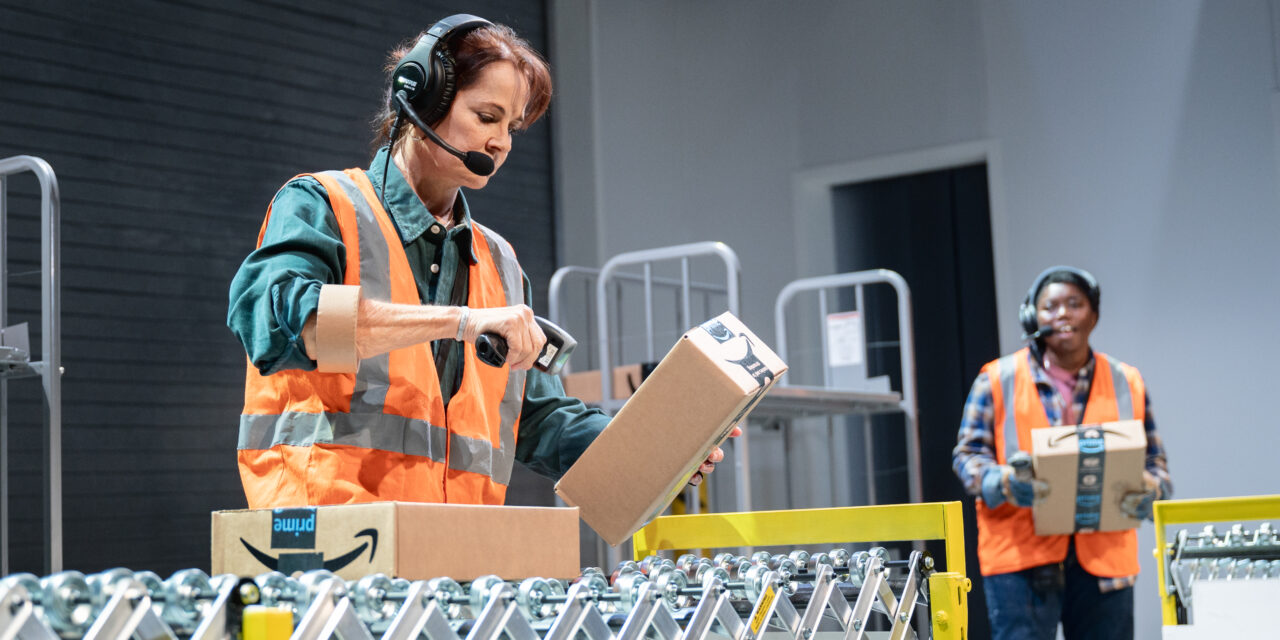Review by Carole Di Tosti
Using a dramatic approach to present a play about the consequences of ignoring climate change, In the Amazon Warehouse Parking Lot opens with a group of queer warehouse workers. We follow them learning how they confront the daily crisis of disappearing coastlines, as the rising water levels reshape the continental United States. Written by Sarah Mantell, who was the recipient of the 2023 Susan Smith Blackburn Prize, the dystopian dramedy runs at Playwrights Horizons until November 17th. It is presented in association with Breaking the Binary Theatre.
In her play, directed by Sivan Battat, Mantell attempts to democratize theater roles. Her script’s casting directions stipulate that for the play to work, not only should the characters be “queer, women, nonbinary or trans,” most of them should be over 50. Her rationale is that she intended that this work include actors which have been “pushed out of this business for looking too queer, too old, too fat, too disabled, etc.” However, she, too, “pushes the envelope.” Mantell’s role descriptions are specific, but in attempting to be inclusive of those rarely cast, any queer “pussy-cat doll types” have been excluded.
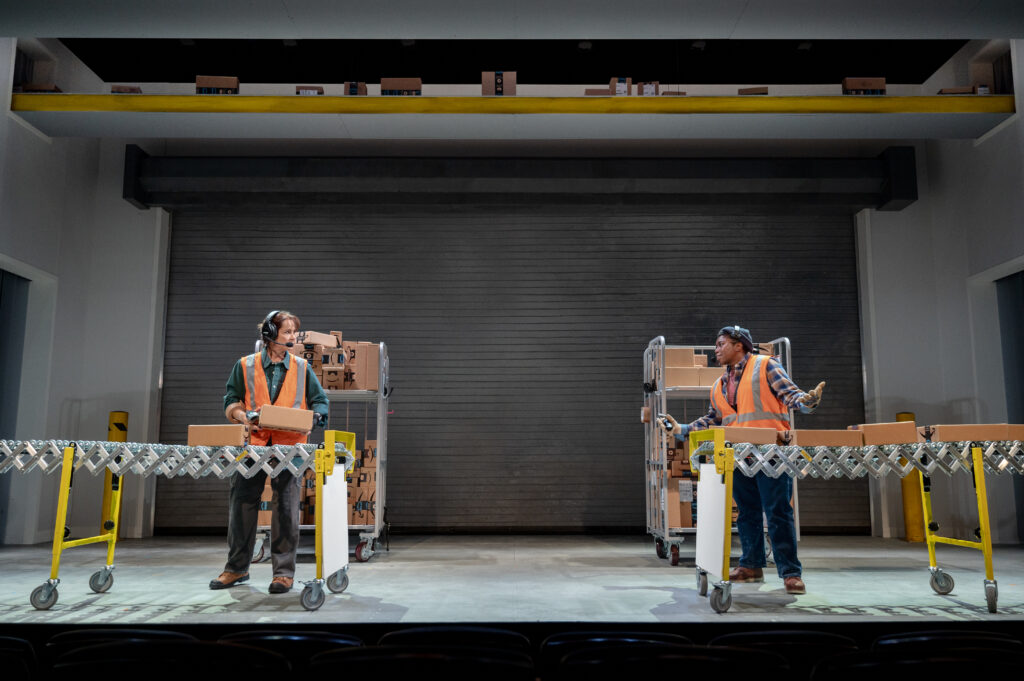
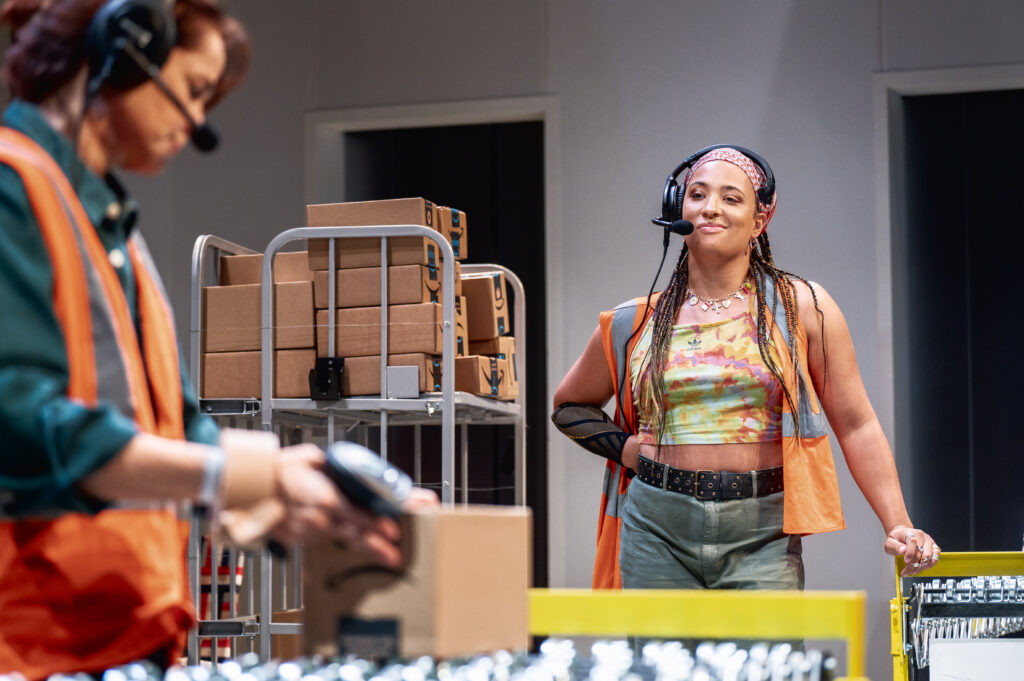
The play’s setting is 15-20 years in the future. The watery apocalypse has drowned and resettled populations toward the interior states. The Amazon workers are forced to relocate, as the corporation moves inward and away from inundation. Mantell highlights the bonds the workers forge. They live in their cars, trucks and SUVs. They commune in the warehouse parking lot to play games, meditate and read. Conspiratorially, they plot to undermine the corporation, following other Amazon workers in different parts of the interior have started to do in rebellion.
Sabotage is their response to the corporation’s treating them without dignity. Amazon abusively keeps them “in the dark” about the forward momentum of the climate disaster. The corporation prevents them access to information about which states are still viable. Also, Amazon denies them access to information about the nation’s uncertain future. Finally, the corporation won’t help them find lost loved ones. This lack of concern and empathy is especially egregious because the workers are desperate about their family and friends. Time is running out to help them to safety against the increasing storms which exacerbate the rising sea levels, relocations and deaths.
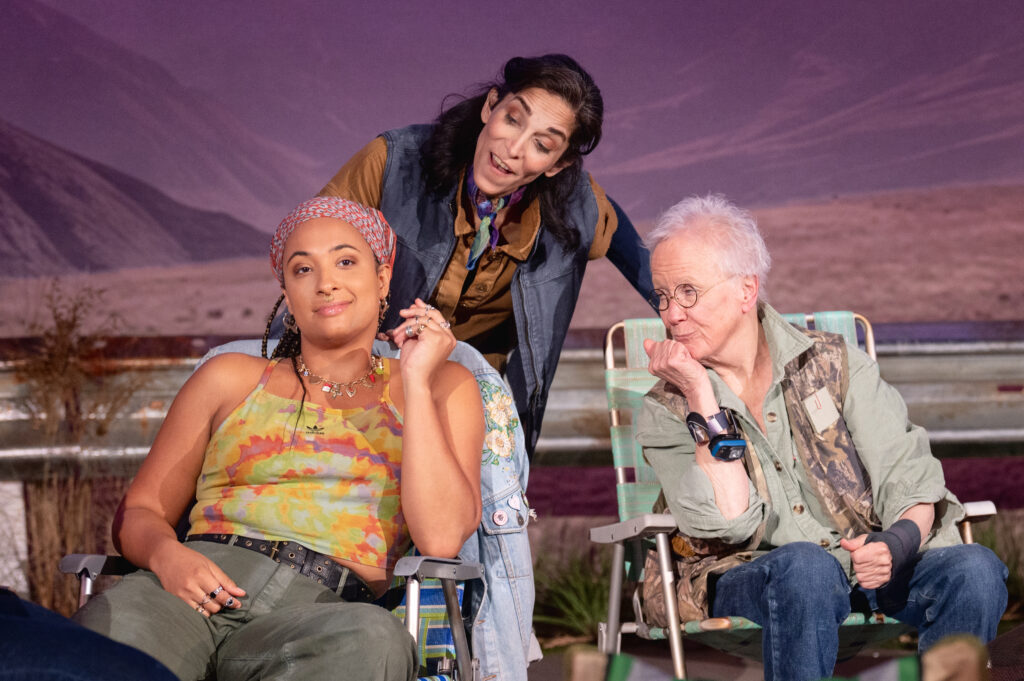
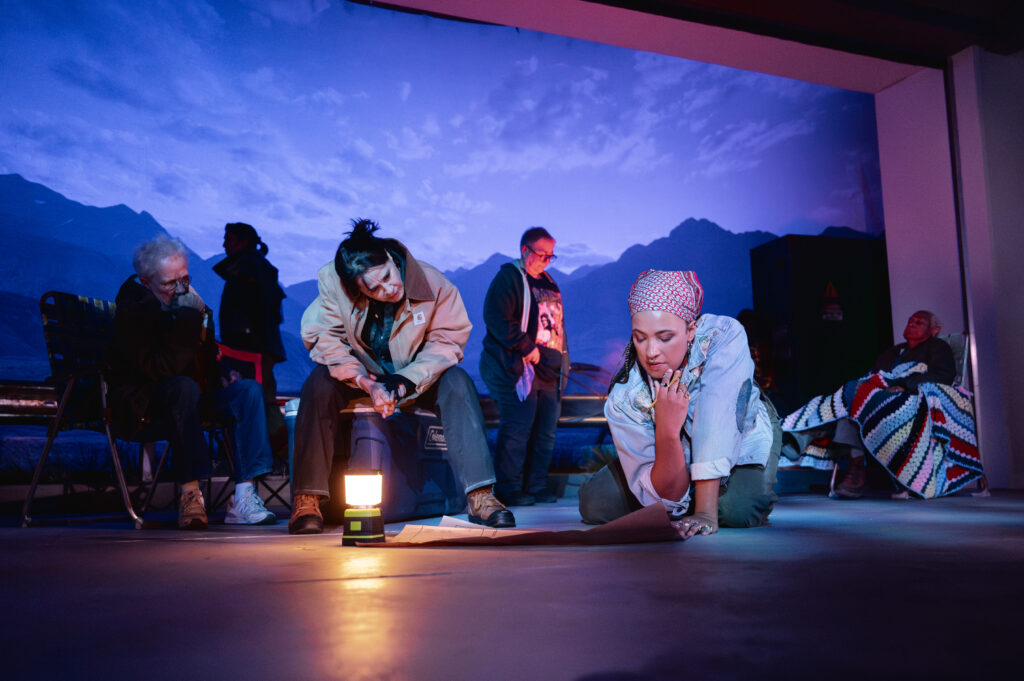
We, like the seven workers, know little about the closely kept secrets of the climate disaster beyond what the characters say. We learn as they remove boxes from conveyor belts and call out shipping addresses to discover clues about which parts of the country still exist and which have been destroyed. As the play progresses, we learn that calling out the addresses on the labels is their last hope of finding out if a beloved family member, friend or relative is alive. From that piece of information, they will attempt to get in touch, if possible. Despite their lack of success, they persist in maintaining what appears to be a futile task given the circumstances that have left them without family or friends, money or means. They can only rely on each other.
What Mantell reinforces is that despite age, race and cultural disparities, the women give each other comfort, joke around, and make do with little food and supplies. With resilience, inner strength and unity of purpose, they persist. They lift themselves above the past horrors they most probably experienced during the precipitating cataclysm. Finally, though they might have worked elsewhere, they are there despite knowing that “the corporation” is in fact their adversary. Though they could make more money in advanced positions, they’ve selected the shipping department in order to read the labels to locate loved ones.
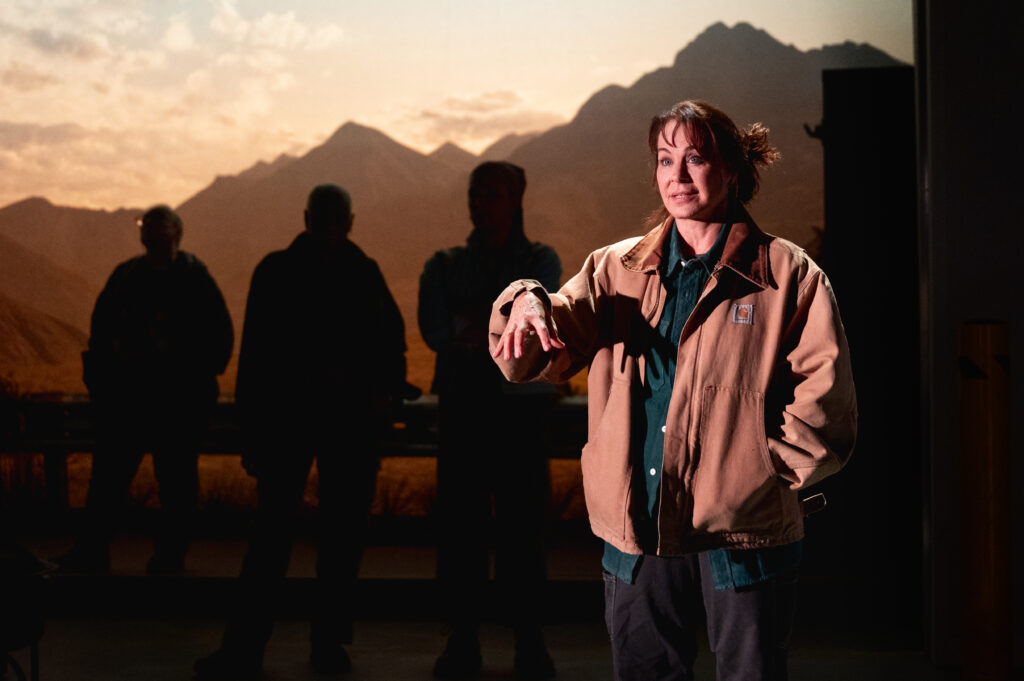
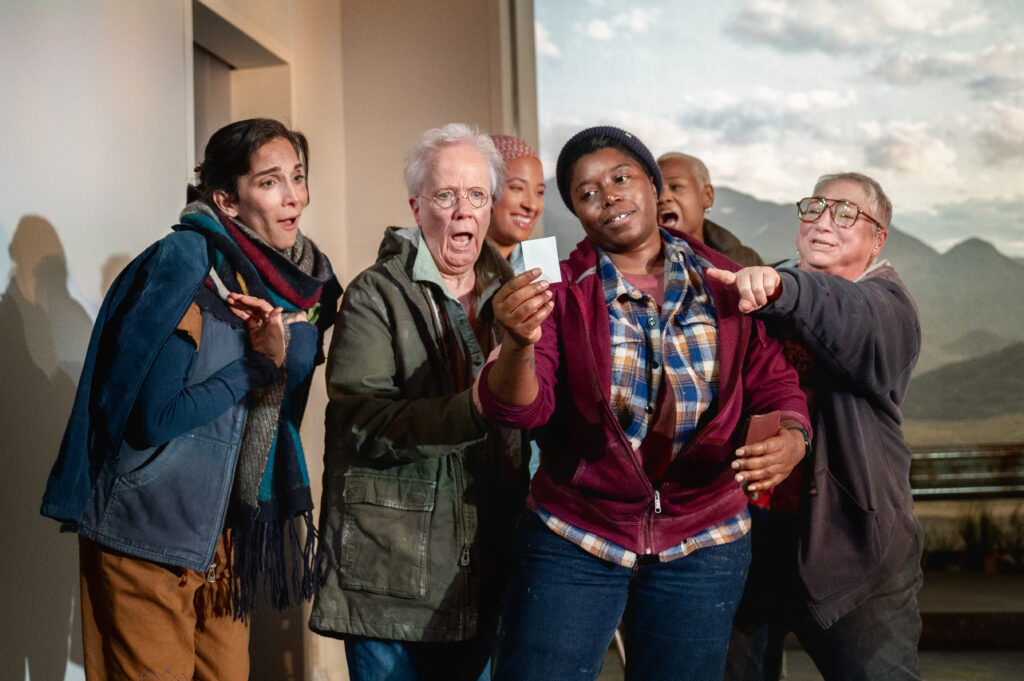
The conflict intensifies when Jen (Donnetta Lavinia Grays) is caught by one of the security guards who is tipped off by her enthusiasm. Questioning her, he finds a written address on a slip of paper. Their hard-won efforts paid off, but the guard took the paper, and Jen can’t remember the exact address. For that she is given a demerit. If any of them accumulate enough demerits, they will be fired.
Jen discovers she won’t be fired. However, the corporation has stopped addressing the labels. Instead, the labels have numerical codes and names. Thus, the women have to find another way to locate loved ones. However, the problem gives them the resolve to take down “the corporation” by any means they can. There is no spoiler. You will just have to see the unfolding love story, the planned sabotage, and the individuals who are able to find family and friends, as they each address the audience and share snippets of their past lives and lifestyles “before the flood.”
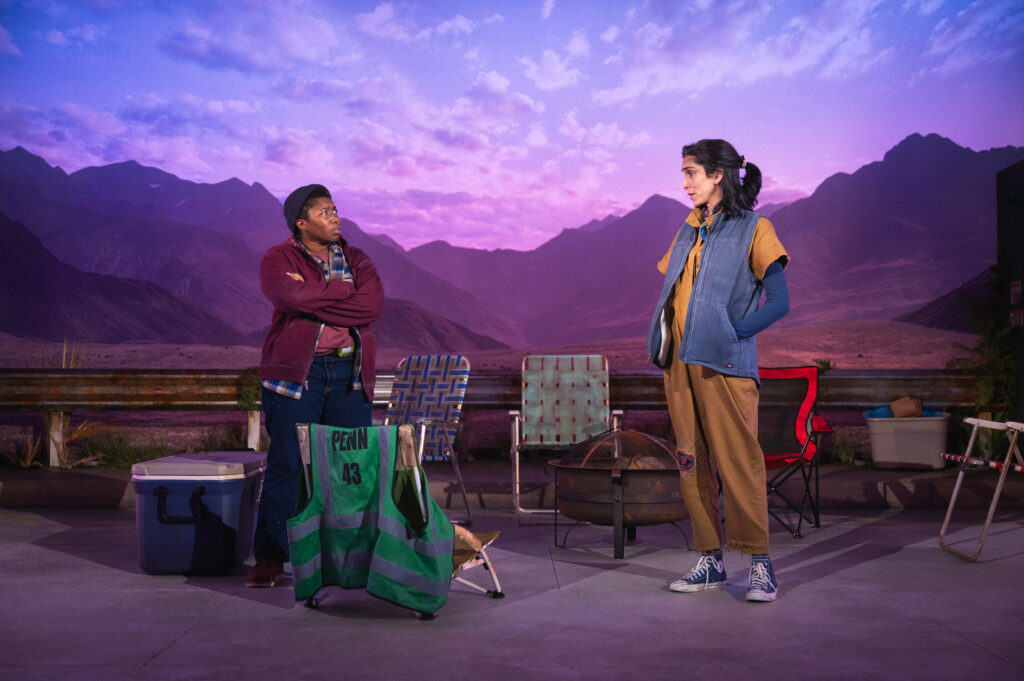
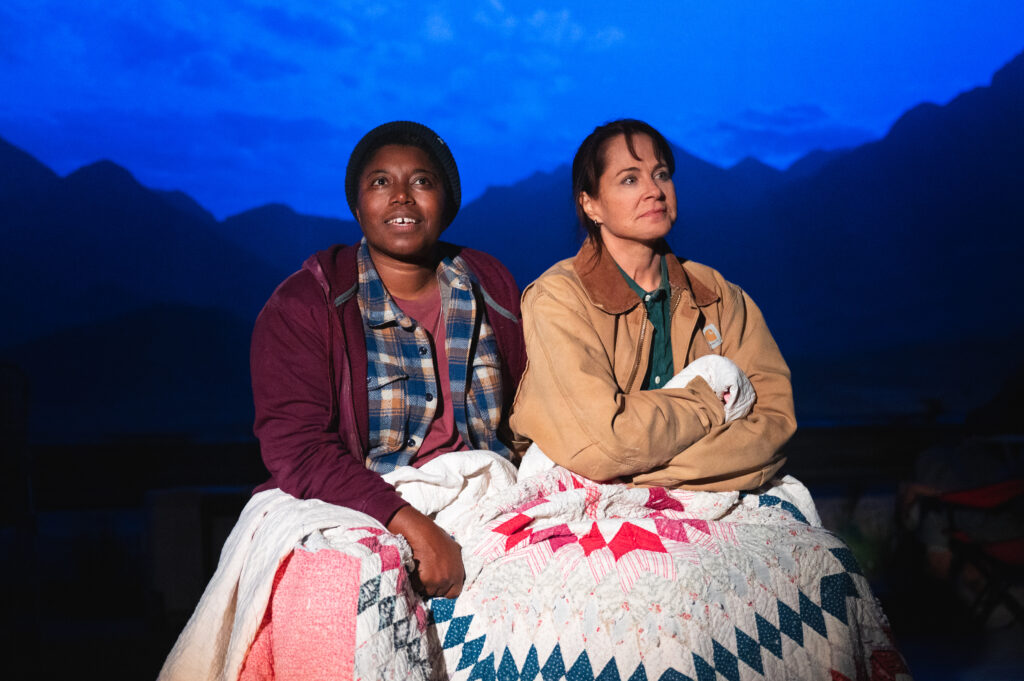
As in many dystopian works, questions are raised and many gaps in information don’t always follow. Much must be assumed. Importantly, Mantell’s character interactions portrayed by a fine ensemble provide the crucial thread which pertains throughout. And as the various characters address the audience intimately identifying themselves, we realize their thriving humanity and beauty abides in spite of the ongoing environmental annihilation.
The creative team successfully evokes director Sivan Battat’s vision for Mantell’s play. The set design and props used to convey the warehouse setting are superb, thanks to Emmie Finckel and Matt Carlin. At the top of the proscenium is a conveyor belt with boxes that go around throughout the play when the workers are on their shifts. That authenticity gives credence to the setting which at times seems too mysterious to be grounded in reality. Cha See’s lighting design is also superb, and the background projections of the area where the warehouse is located are lovely. Praise also goes to Sinan Refik Zafar (sound design), and Mel Ng (costume design).
In the Amazon Warehouse Parking Lot runs 90 minutes with no intermission at Playwrights Horizons 416 West 42nd Street. https://www.playwrightshorizons.org/about/production-history/2020s/2425-season/in-the-amazon-warehouse-parking-lot?gclsrc=aw.ds&gad_source=1&gad_campaignid=22436347815
Production photos by Valerie Terranova.

